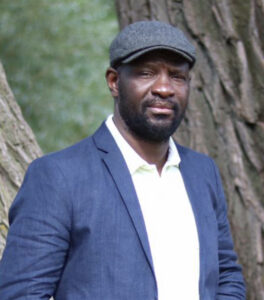Menu
Zubairu Wai
University of Toronto

Zubairu Wai is Associate Professor of Political Science and Global Development Studies at the University of Toronto. He is the author of Epistemologies of African Conflicts: Violence, Evolutionism, and the War in Sierra Leone (2012), which won the ATWS Toyin Falola Africa Book Award for 2013, and co-editor (with Marta Iñiguez de Heredia) of Recentering Africa in International Relations: Beyond Lack, Peripherality, and Failure (2018). His research takes up epistemological questions regarding the nature, conditions, and limits of disciplinary knowledge and practices in International Relations, Development Studies, Conflict and Security Studies, and African Studies. Specifically, he focuses on how the intersections of power and coloniality frame the discourses and political economy of knowledge, violence, conflict, development, and state formation in Africa, and the Global South more broadly. His most recent manuscript, Thinking the Colonial Library: Mudimbe, Gnosis, and the Predicament of Africanist Knowledge, interrogates the contaminating vectors of the colonial archive and its implications for epistemic decolonisation.
Talk Information:
Thinking Mudimbe and the Colonial Library
July 1, 2022 | 9:00 AM
This presentation engages the work of V.Y. Mudimbe around the question of the colonial library, its structuring role in Africanist discourses, and possible transcendence. A major conceptual tool in Mudimbe’s critical repertoire, the colonial library provides a useful way of thinking about the historicity and discursivity of Africanist disciplines and the challenge of decolonising their epistemic foundations. What exactly is this library and how does it structure knowledge about Africa? I want to interrogate the possible of thinking Africa beyond the fetishes of the structuring violence of the library and ask whether disciplinary knowledge about Africa is possible outside of the power-knowledge regimes of the library, or whether Africanist knowledge, precisely because of the structuring violence of the library, is always already doomed at its very moment of enunciation? What does this mean for a subject who wants to speak with their own ‘authentic’ voice? Can this subject escape the structuring power of the library and be free from its contaminating violence, or is this subject always already at risk of reproducing in their own speech the pre-established discourses of the library as critics maintain? These are some of the questions that this paper attempts to grapple with.